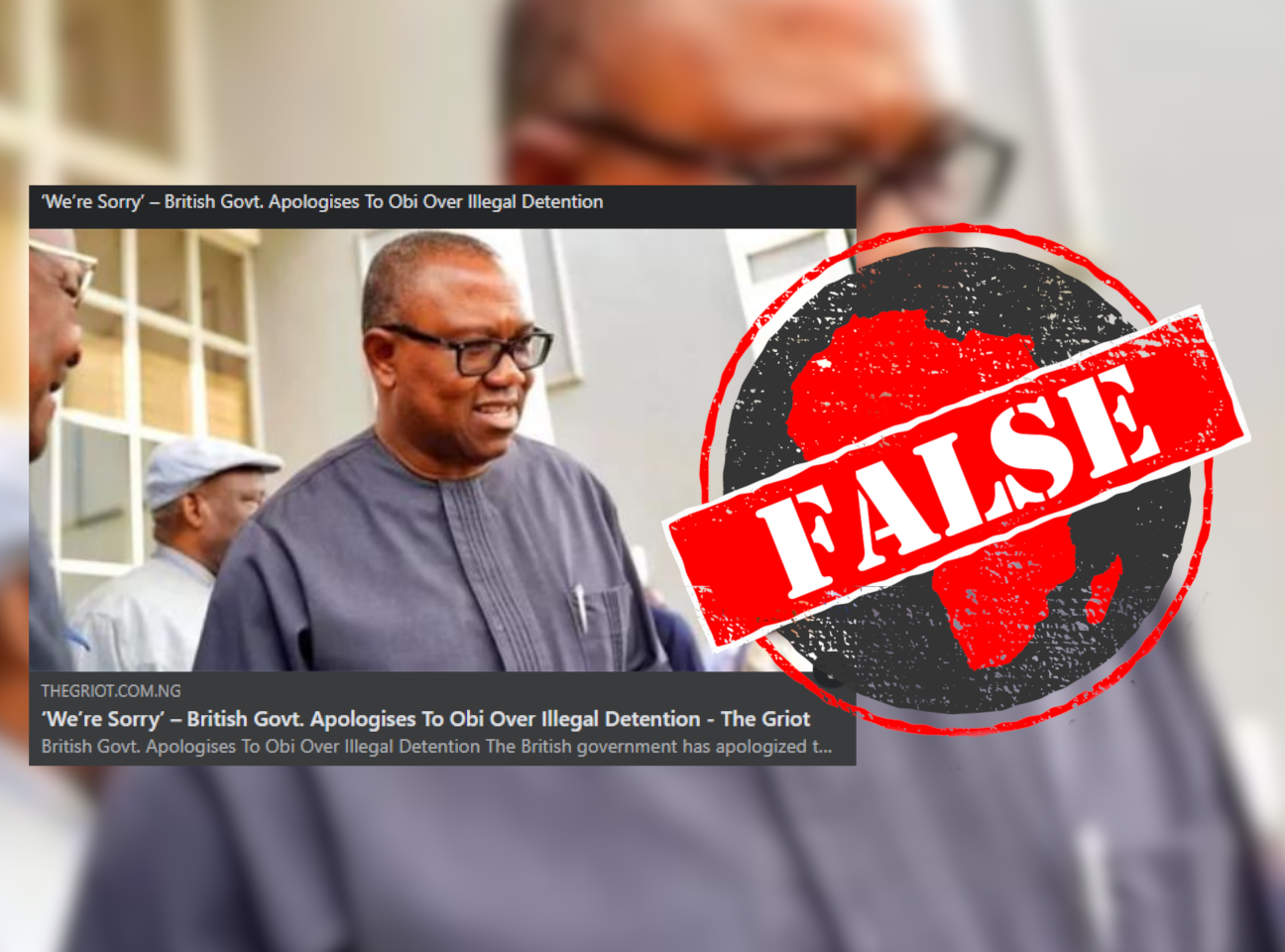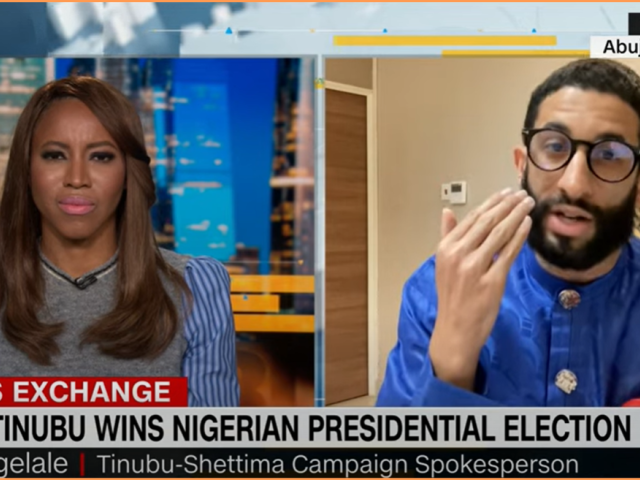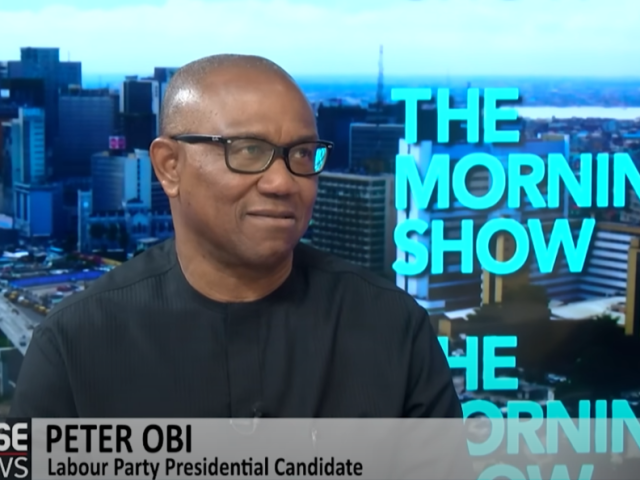IN SHORT: An embarrassing incident where leading Nigerian politician Peter Obi was detained in the UK attracted plenty of news coverage. But the UK has not apologised, despite several claims that it had.
The detention of Nigerian presidential candidate Peter Obi at the UK's main Heathrow airport over the Easter holidays in April 2023 captured Nigerians' attention.
Obi was detained on 7 April after it was alleged that his identity was being used by someone in the UK.
Obi contested Nigeria’s February 2023 presidential election on the Labour Party ticket. He came third, a result he is challenging in court.
Days after Obi’s detention, Daniel Bwala, spokesperson for the opposition Peoples Democratic Party, tweeted that the British government had apologised to Obi.
Several posts on Facebook have echoed Bwala’s claim, including here, here, here and here.
One of the posts reads: “The British Government has Apologised to Peter Obi for MISTAKENLY detaining him for a few hours at Heathrow Airport. Say to the righteous 'It Shall be Well with them’.”
But did the British government apologise to Obi for the incident? We checked.

Obi’s media team says otherwise, ‘no comment’ from British High Commission
Local Nigerian media reported that Obi’s media team had denied this, citing a statement signed by spokesperson Diran Onifade.
“We would like to state emphatically that we are not aware of any such apology and have not issued any statement whatsoever in that regard,” the 13 April statement read.
Two weeks later, at time of publication, has any new evidence of an apology emerged?
“We can offer no comment on this case,” Dean Hurlock, the spokesperson of the British High Commission in Nigeria, told Africa Check.
However, such an apology would have been the subject of publicity and media coverage if it had happened.
Republish our content for free
For publishers: what to do if your post is rated false
A fact-checker has rated your Facebook or Instagram post as “false”, “altered”, “partly false” or “missing context”. This could have serious consequences. What do you do?
Click on our guide for the steps you should follow.
Publishers guideAfrica Check teams up with Facebook
Africa Check is a partner in Meta's third-party fact-checking programme to help stop the spread of false information on social media.
The content we rate as “false” will be downgraded on Facebook and Instagram. This means fewer people will see it.
You can also help identify false information on Facebook. This guide explains how.




Add new comment